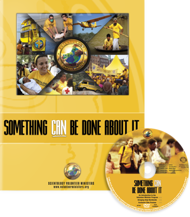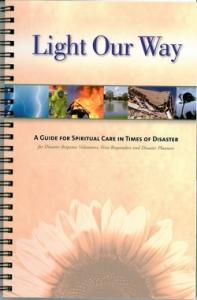Surveys Show that People Attending Religious Services Appear to be Doing Better during the Pandemic

Free Volunteer Minister DVD and portfolio giving advice and help for common problems in life.
With the religious holidays upon us during this most unusual year, it is important to reflect on religious influence in society.
There has been a great deal of discussion about the effect stress has had on the mental health of Americans during 2020. Many have complained about the feelings of isolation the pandemic has caused and the stress of the elections.
An article entitled “Americans’ Mental Health Ratings Sink to New Low” regarding a Gallup poll completed in November of 2020 showed that “Americans' latest assessment of their mental health is worse than it has been at any point in the last two decades.”
Gallup’s Health and Healthcare survey, which has been conducted each year since 2001, asks Americans each November whether their own mental or emotional wellbeing is excellent, good, fair or poor.
This year’s rating of Americans’ Mental Health versus the same time last year by gender, party identification, religious service attendance, race, marital status, age group and household income, showed that in all cases wellbeing had decreased except for one category: weekly religious service attendance. While all other categories dropped, this category rose nine percentage points.
Another survey published in the September 2020 “Religious Freedom Index” by the Becket Fund for Religious Liberty, found that “more than 60 percent of respondents said that religion and people of faith are part of the solution to the issues facing our country” such as the pandemic and elections. More than 60 percent of respondents said that faith or religion was important to them during the pandemic.
2020 has indeed created great stress for everyone including the faith community. Due to being prohibited from gathering at their church, synagogue or temple, many institutions have begun holding religious services virtually. Surprisingly, some congregations reported reaching more people this way and some parishioners reported an enhanced experience online as they were able to see their religious leader better.
The National Voluntary Organizations Active in Disaster (NVOAD), (www.nvoad.org) in their booklet entitled “Light Our Way – A Guide for Spiritual Care in Times of Disaster,” offered wisdom on the need for spiritual care during times of disaster. Affirming the importance of faith, the booklet said, “Spirituality is an essential part of humanity. Disaster disrupts people’s lives significantly. Nurturing people’s spiritual needs contributes to holistic healing. Everyone can benefit from spiritual care in times of disaster.”
The booklet continued, “Spiritual care includes anything that assists an individual, family or community in drawing upon their own spiritual perspective as a source of strength, hope and healing. In disaster, anything that nurtures the human spirit in coping with the crisis is spiritual care. Religious leaders naturally provide care for their own congregants, members, and parishioners in a manner imbued with the symbolism, meaning and resources of their own faith traditions. In fact, for individuals who belong to particular communities of faith, their own clergy and religious leaders are usually the best persons to offer them spiritual care in times of trouble.”
Many fulfill their spiritual needs in community with others during a formal religious service while others draw upon their spiritual strength with the Almighty outside of a formal setting. In either case, whatever one wishes to call it, religion or spirituality has a positive effect on a person during times of disaster or stress.
We hope that more Americans will take advantage of their spiritual opportunities online and where possible and safe in communion with others, in order to give more meaning and heath to their lives as we navigate the coming months in 2021. This non-religious educational material is available online at the Church of Scientology’s “How to Stay Well Prevention Resource Center” site. (www.scientology.org/staywell)
Rev. Taylor is the National Director of the Churches of Scientology Disaster Response (CSDR) (www.csdr-us.org) and has worked during this year along with her fellow Volunteer Ministers throughout the country distributing thousands of masks as well as millions of hygiene protocol education booklets to residences, shops, community centers, government agencies, medical centers, and hospitals.
Rev. Susan Taylor
Church of Scientology National Affairs Office
+1 202-667-6404
email us here
Legal Disclaimer:
EIN Presswire provides this news content "as is" without warranty of any kind. We do not accept any responsibility or liability for the accuracy, content, images, videos, licenses, completeness, legality, or reliability of the information contained in this article. If you have any complaints or copyright issues related to this article, kindly contact the author above.

